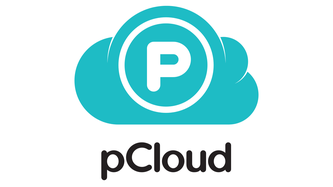pCloud Review

Cloud storage is rapidly becoming a feasible alternative to physical hard drives given the easability, practicality and nonexistent physical footprint. Cloud storage began with the likes of Dropbox and Google Drive and now consists of many different providers competing for cloud users.
pCloud differentiates itself with a lifetime plan. Yep, you read that right.. LIFETIME PLAN!
Many users are unwilling to commit to monthly or even yearly repayments and pCloud avoids users having to pay for yet another subscription. Studies show that the average person is willing to commit to 3 subscriptions.. pCloud’s lifetime plan avoids just that! pCloud storage can be the perfect one off gift for a loved one with no strings attached – one payment and it’s yours forever (well, 99 years).

Pricing
pCloud is FREE for 10GB of storage, with users able to increase the free amount by referring friends and sharing the service (+4GB). The prices below are in US dollars, so expect a differentiation for varying exchange rates depending on where you are situated.
Then there are two paid options:
Premium
This plan features 500GB of storage.
– $4.99/month for 1-month
– $3.99/month for 1-year ($47.88 billed every year)
– $175.00 one time payment for the lifetime plan
Premium Plus
This plan features 2000GB (2tb) of storage.
– $9.99/month for 1-month
– $7.99/month for 1-year ($95.88 billed every year)
– $350.00 one time payment for the lifetime plan
pCloud for family allows users to invite up to 5 family members to join pCloud and each of which can be assigned a specific amount of storage with a limit that you can set. Shared folders only take up storage from the owner of each specific folder. This is a 2TB plan which currently goes for $500 for a lifetime subscription (discounted from $1400).
pCloud also has a business version which requires a minimum of five users and charges $544 per year or $9 per user per month. You can also pay monthly, which works out to be $56.68 per month or $11.34 per user per month.
Usability
In the cloud storage world, finding a reliable, easy to use system with a friendly user experience can be difficult, but has quickly become one of the main selling points for cloud buyers. And pCloud ticks that box perfectly.
The desktop client consists of a system tray icon and a sync folder called pCloud Sync. On Windows, the sync folder is created by default in your “documents” folder. Furthermore, there is the pCloud Drive folder which you can access using the system tray icon.
There are easy to use buttons along the top of the desktop client making it easy to navigate between account overview, shared links, the pCloud Crypto add-on, settings and help and support options. The account overview shows your remaining space and has links that open your Drive, the web client and its trash page.
The client works on Windows, macOS and Linux.
pCloud also has an intuitive web app, accessibly simply by going to pCloud.com. The content browser can show your files and folders in list or tile view. There’s a checkbox next to every file and folder, so you can select them and perform actions using the buttons located at the top. The web app is easy to use and allows simple drag and drop transfer. Transferring is a tad more reliable on the Windows/Mac client for GB’s of data, but that’s a given.
When you’re on the go you can use the pCloud smartphone app to access your files. The icons at the top of the menu let you quickly access your photos, videos, documents or music. It can automatically upload photos and videos, too. The app is easy to use and available for Android and iOS.
Now one of the main selling points for pCloud: MEDIA! pCloud have done an incredible job at differentiating their service by allowing users to access and playback virtually any media format straight from the web client/desktop client/mobile app. For example, if you have an abundance of videos on your pCloud, you can access them at anytime, anywhere (with data) on your mobile and begin playing them back immediately! Think of this as like your own streaming service. You have now created your own Netflix server essentially, so long as the content is your own.. The time taken to load the file could improve a bit here, but overall, it does superbly well. Almost all other clouds struggle to playback even half the popular media types. Well done pCloud!
File Management
One of the most convncing arguments to entice you to convert to the cloud is the ability to share files instaneously with anyone. Files from pCloud can be shared from the web client, desktop client and mobile client with ease, allowing people to be invited to view/modify files, or just by simply sharing a link. Users will then be able to download that file just with the link provided.
Generated links can also be protected with a password and expiry date, another feature that enhances pCloud’s security. Links can also be shortened to make things easier when sharing.
Metrics for each download are recorded in the statistics tab, a nice little touch to see how popular your links are. Links can also be shared directly to social media sites like Facebook and Twitter.
To help manage all your shared action, there is a “shares” page in the pCloud web app that shows you what you’ve shared with others and a “shared with me” view that tells you what others have shared with you.
The ability to share files and folders is only available on a select few cloud platforms, and pCloud falls under that bracket. The smartphone app also lets you share links to popular social media platforms and you can send an email with a direct link also.
pCloud works seemlessly on your desktop too. You can sync any folder by right-clicking it and selecting “sync to pCloud.” That will add it to your pCloud account and start uploading your files to a server. You can also copy the file to your existing sync folder. Another approach is to sync it from the desktop client. Its sync menu lets you add a new sync and shows your existing synced folders. We didn’t experience issues while syncing.

Cloud Speed
First things first, internet in Australia is.. average. The top speed you can get for your home is 100mbps download, and 40mbps upload (if you’re lucky).
We tested download/upload on two different types of internet services:
a) Business internet with 180mbps download and upload
b) Home internet with 100mbps download and 2mbps upload (I know it’s putrid)
These speeds were tested at time of testing for comparison. The download speeds were great, quick and almost up to scratch with our ISP. Upload was around half to three quarters of our tested upload speed. Not bad, especially given how far we are (Australia) from the US servers.
pCloud has its servers placed in the United States, with the main data centre located in Dallas. pCloud also uses block-level file copying to assist in speeding syncing and uploading. In a nutshell, when you make a change to a file, rather than copying the entire file from your hard drive to the cloud server again, only the parts of the file that changed (called the delta) get sent.
Privacy and Security
pCloud is located in Switzerland, which, luckily for its users, have the most stringent privacy laws. pCloud does keep data on its United States based servers, however, compliance remains with Swiss laws. Specific cases can enable the company to cooperate with law enforcement though.
The best option to protect your privacy is to use zero-knowledge encryption, which is an upgraded. Buying its Crypto add-on is a good investment to prevent government agencies from snooping as well. The Crypto option is exceptional as it creates a seprate folder in your pCloud account titled “Crypto folder” , which you can lock and unlock. You could essentially trnasfer all your files to the Crypto folder if you want the added benefit of the Crypto add-on at all times.
pCloud Crypto offers private, end-to-end encryption which prevents anyone other than you from accessing, viewing, editing your fiels etc. Crypto costs an additional $3.99 per month, but well worth it if you are anxious about security.
Encryption makes it impossible for the server to understand your data, so file previews will not work. pCloud offers you the option to choose which files you want to encrypt and lock and which you want to leave as they are
pCloud also uses two-factor authentication to stop hackers who have stolen your password from accessing your account. Still, you should make sure you have a strong password from the outset to avoid it getting to that stage.
pCloud complies with the General Data Protection Regulation, but your data might be subject to U.S. cloud laws and regulations if you are situated there and they will overrule those terms in the privacy policy that correspond to the GDPR. With terms like this, you need to be aware that your personal information and communications may be transferred to and maintained on servers or databases located outside of your state, province or country. pCloud may also process your personal data for a variety of reasons that are allowed under data protection laws in the European Economic Area and Switzerland.
You do agree that personal data will remain at pCloud for the minimum amount of time necessary for it to fulfill legal or regulatory obligations and business purposes. Personal data might remain for longer periods than required by law if it holds legitimate business interests and isn’t prohibited by law. The GDPR “right to erasure” allows you to withhold consent and delete your account.
pCloud may collect IP address, browser type, OS, referral source and device information, but no need to worry, this is not enough information to identify you. pCloud uses tracking services to collect information about you such as length of visit, page views and navigation paths, visited pages and more. You can find the details in its privacy policy.
pCloud does have strong security though using the TLS protocol to prevent attacks and high end encryption to secure your data that is transmitting or at rest. Once your data has reached a data centre, it is replicated across at least 5 other servers to ensure its safety and encrypted with 256-bit AES.
Conclusion
pCloud offers one thing that myself, and many other cloud users want: a lifetime plan. This is a huge selling point as subscriptions add up and get quite frustrating for most people. But this isn’t the only reason we love pCloud.
For a start, creating your own media server is a piece of cake with pCloud. Accessing files is easy, intuitive and user friendly. The desktop client integrates seemlessly with any desktop/laptop OS and makes things super simple for the user. The app is also brilliant, especially how it converts your files to be viewed at any time.
pCloud’s security is one of the best in the biz, with unreal encryption and a plethora of privacy options for you to consider. The speeds are great and the reliability is up there with the main competitors, particularly as there are 5 backups and history files that can be accessed.
For us, pCloud is one of the best cloud storage all rounders and we highly recommend this product.
Check them out here: www.pcloud.com, or click the image below!

